Agricultural Engineering
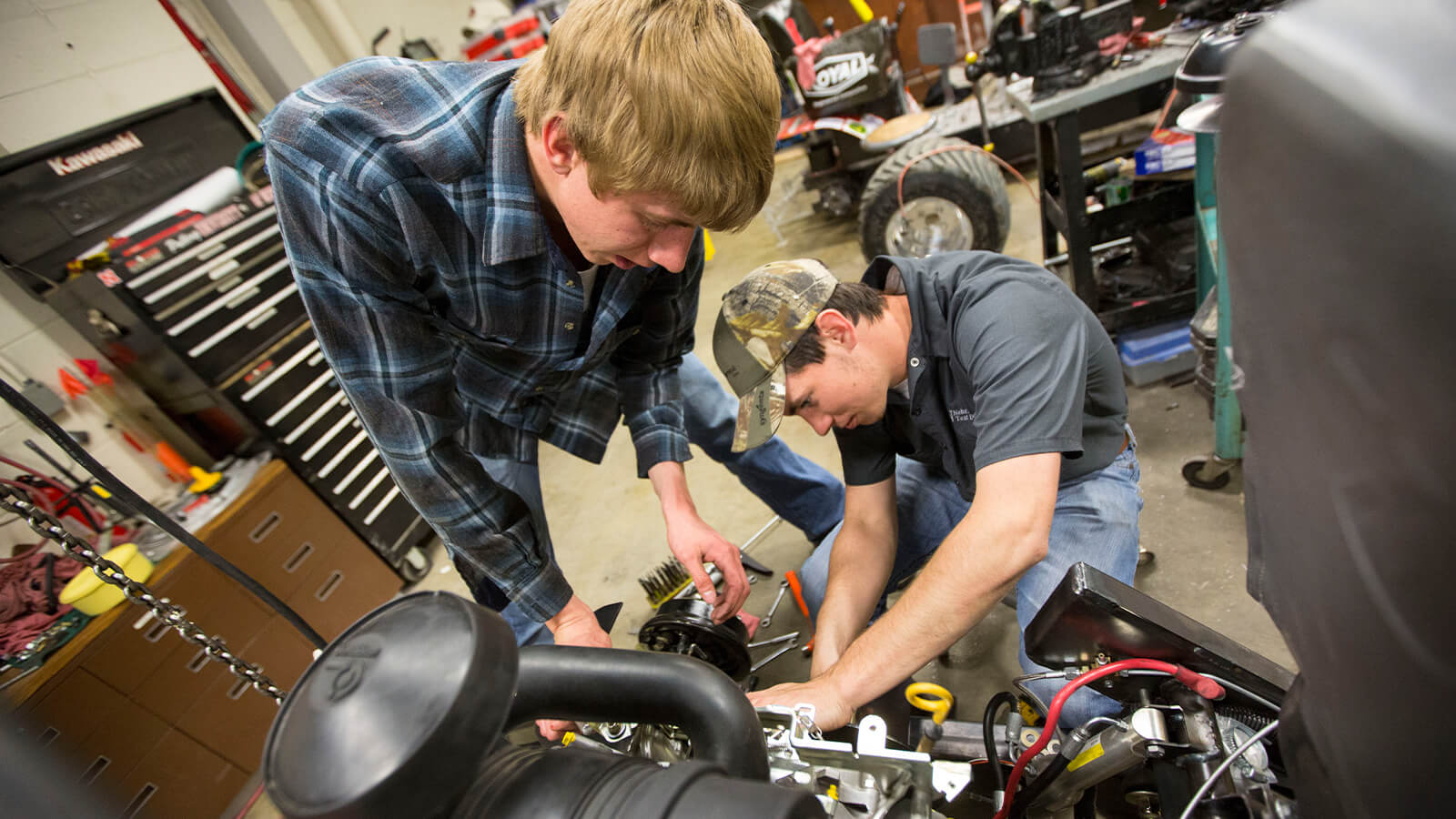
-
College
-
Hours Required
123 credit hours -
Areas of Focus
Machine Design Engineering, Smart and Autonomous Systems, Natural Resources And Irrigation Engineering
The Nebraska Difference
Top-Ranked Nationally
Nebraska Tractor Test Lab
Design Competitions
Paid Internships
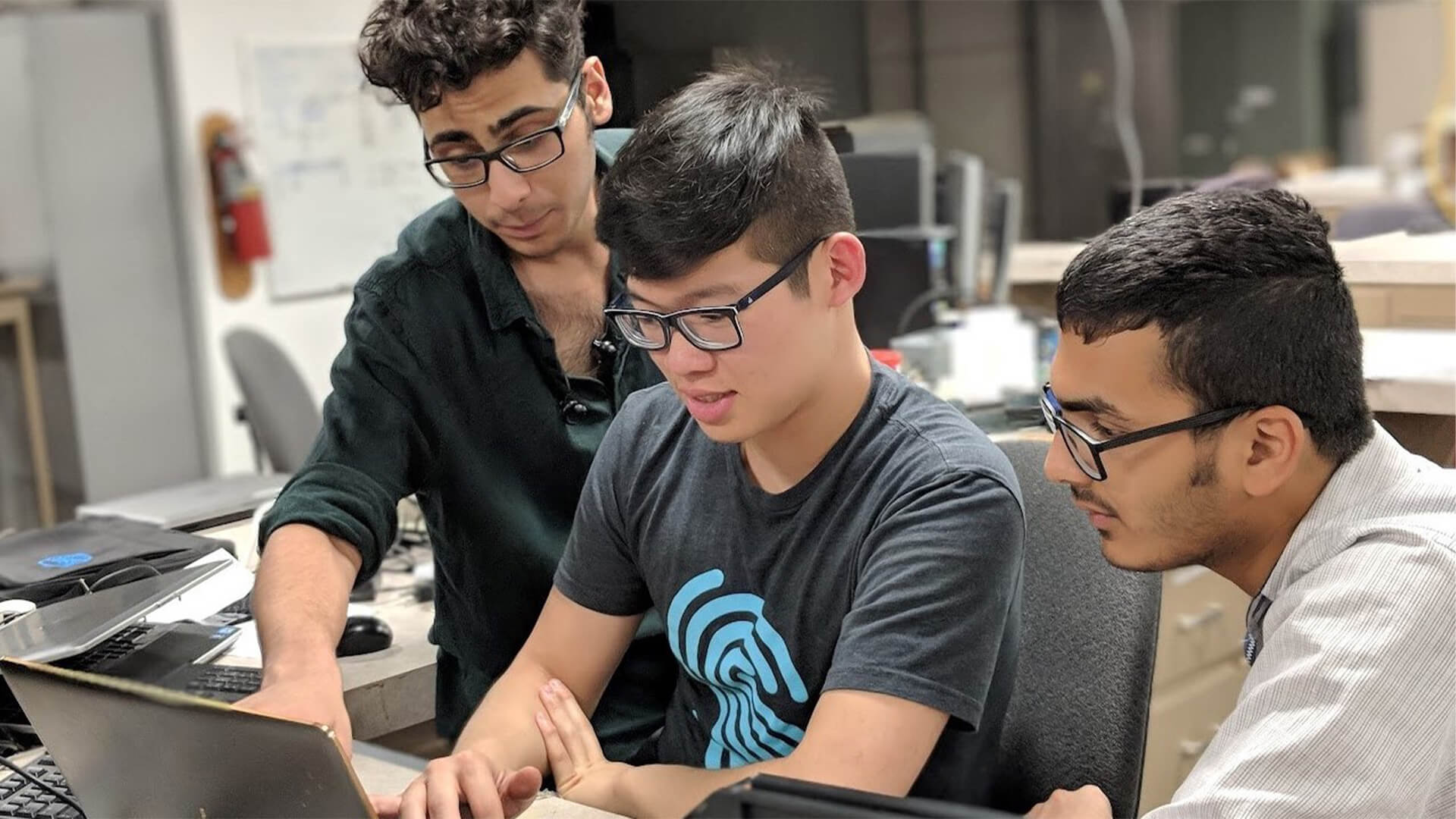
Program Features
Nationally Ranked
Program is consistently ranked among the top 10 nationally (U.S. News & World Report), which means your degree is highly valued by employers nationally and internationally. The major offers flexibility, giving you specific electives in an emphasis area that gives you additional knowledge and skills.
Learn by Doing
You’ll benefit from small class sizes and hands-on learning in and out of the classroom. Our students work part-time at the Nebraska Tractor Test Lab and on departmental research projects, gaining valuable experience for graduate study and future employment. You can also benefit from summer jobs, internships and co-op programs, gaining practical experience for your future.
Design Competitions
You will gain valuable experience by participating in professional organizations and design competition teams, such as the American Society of Agricultural and Biological Engineers, UNL Soil and Water Resources Club, Quarter-Scale Tractor Club, Fountain Wars Club, Nebraska Society of Professional Engineers and the Society for Women Engineers.
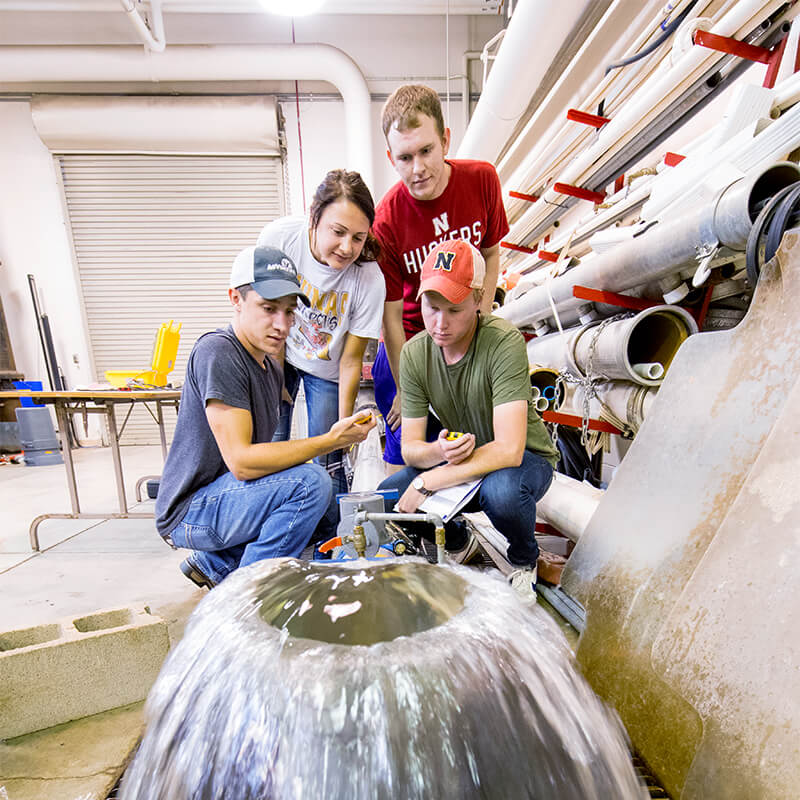
Notable Courses
Computer-Aided Problem-Solving (AGEN 112)
Problem solving techniques and procedures through Excel, MATLAB and graphical methods. Emphasis on problem and solution communications.
Instrumentation I (AGEN 260)
Instrumentation concepts for agricultural and biological systems: charge, current, voltage, impedance, power, circuit analysis. Introduction to sensors. Safety and effects of electricity on human bodies.
Power Systems Design (AGEN 325)
Fundamentals of machine power systems: fluid power, pumps, motors, cylinders, control devices and system design; electric motors, operating characteristics and circuits; and internal combustion engines.
Natural Resources Engineering (AGEN 350)
Soil and water resources and engineering processes to analyze watersheds: soil water relations, precipitation, runoff, erosion, flow in waterways and through reservoirs and water quality.
Site-specific Crop Management (AGEN 431)
Principles and concepts of site-specific management. Evaluate geographic information systems for crop production practices. Utilize hardware and software to successfully apply information affecting crop management.
Instrumentation and Controls (AGEN 460)
Analysis and design of instrumentation and controls for agricultural, biological, and biomedical applications: basic sensors and transducers, analog and digital electrical control circuits and interfacing.
Huskers Do Big Things
Internships
- Biological research assistant, USDA, Nebraska
- Drivetrain product engineering intern, John Deere, Iowa
- Engineering intern, Southwestern Company, Tennessee
- Engineering intern, Cargill, Illinois
Careers
- Product engineer, John Deere, Iowa
- Production engineer, Kawasaki Motors Manufacturing, Nebraska
- FieldNET water management support, Lindsay Corporation, Nebraska
- Grain terminal operation engineer, Archer Daniels Midland, Illinois
Graduate Schools
- M.S. Agricultural and Biosystems Engineering, University of Nebraska–Lincoln
- Ph.D. Electrical Engineering, University of Texas at Austin
Outside the Classroom
At Nebraska, you’ll have many opportunities to discover your academic community and stretch your strengths.
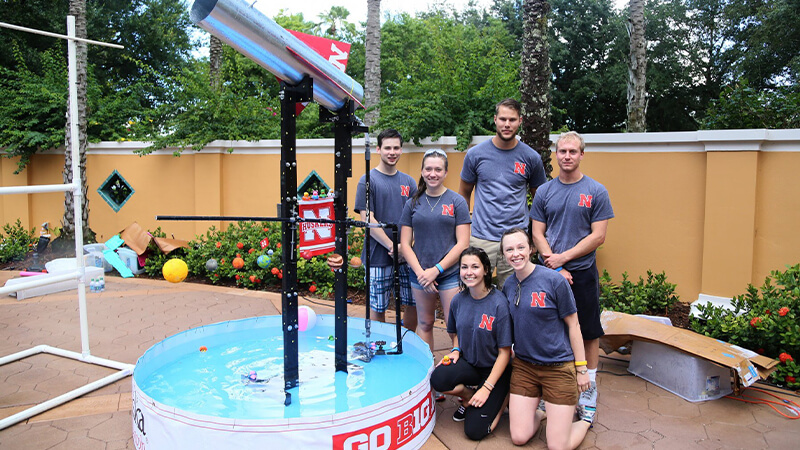
Collaborate with industry professionals and your peers by joining professional and student organizations such as the UNL Robotics Club or ASABE Fountain Wars Competition team.
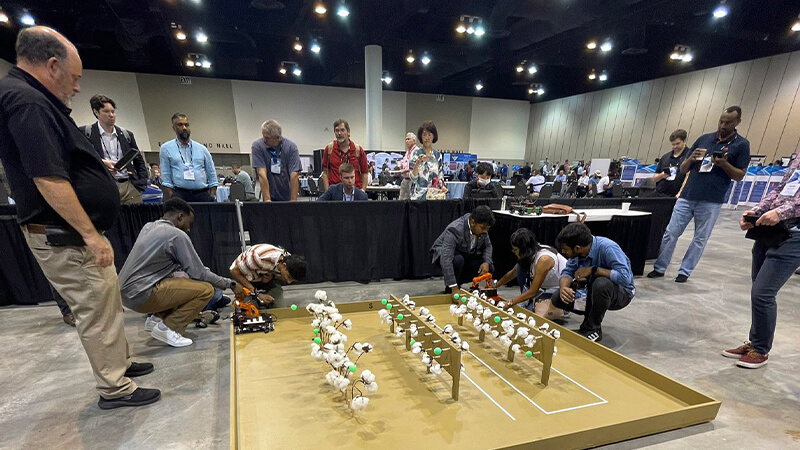
Gain on-the-job skills at the one-of-a-kind Nebraska Tractor Test Laboratory and on competition design teams.

Connect with companies and organizations for paid internships and jobs, such as via 1-to-1 counseling and career fairs through career services professionals within the university.

Featured Faculty
Derek Heeren, Ph.D., Associate Professor and Irrigation Engineer
Dr. Heeren’s goal is to prepare students to be wise managers of irrigation, water resources and agricultural systems. He teaches courses in agricultural systems technology and agricultural engineering, advises undergraduate and graduate students, and is co-advisor for the Agricultural Systems Technology Club. His students gain hands-on experience with irrigation technology while working with industry partners. He also recently published a textbook, “Irrigation Systems Management”.
Academics & Experiential Learning
- Tackle big challenges in your classes and work with faculty on research dedicated to solving global problems and saving lives.
- Engineering is a global profession. Increase your knowledge and marketability by participating in a study abroad opportunity.
Career Preparedness
- You’ll gain career-level experiences right from the start of your academic adventure to set you apart from others when you’re ready to enter the career or graduate school of your choice.
- Participate in paid internships for valuable on-the-job experiences and to develop lifelong career contacts.
Community
- With more than 50 clubs and organizations in the College of Engineering, you’ll build connections with other students and faculty through fun and hands-on experiences.
- Situated on East Campus, you’ll find an inviting atmosphere for learning, studying and having fun.
Have Questions? We're Here to Help
If you have questions about the Agricultural Engineering major or navigating the application process, contact us.

- Contact Name
- Taryn King
- Contact Title
- Recruitment Coordinator
- Phone
-
-